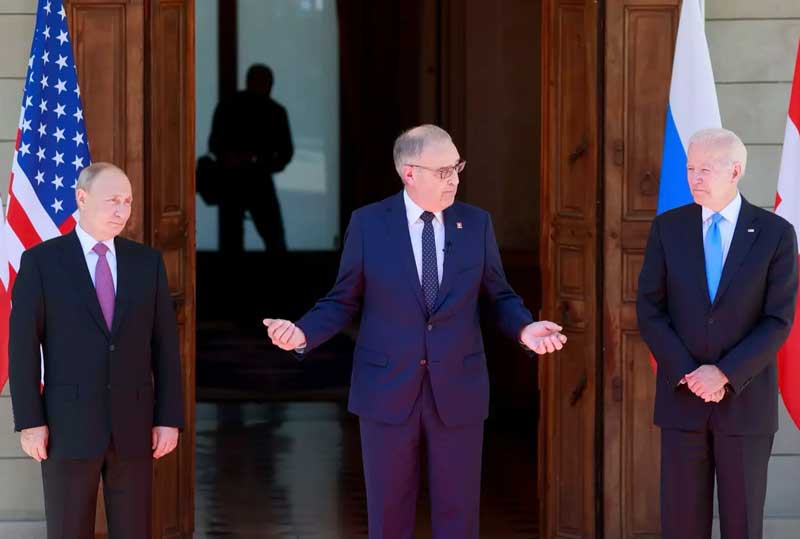The good offices or: The difficulty of making peace
from Wolf Linder
There is one indispensable prerequisite for a peace agreement: trust! Trust in the other party, but above all Trust in the intermediary.
Diplomatic mediation is confidential. Where there is little to know, fantasies run rampant. Switzerland's good offices are judged very differently: While some praise the mediation efforts of neutral Switzerland as unique, others think they are mere postman's services between diplomats. And with electronic means of communication, they have become as superfluous as the milkman.
Firstly, we follow a report on the 1962 Evian Peace Conference between France and Algeria. It was organised by Switzerland and led to the end of the Algerian War, Algeria's independence from France and peace between the two countries. Secondly, we mention other important examples of Swiss peace efforts since the Second World War. We then take a look at the difficult conditions for successful peace mediation and show the role played by neutrality.

Heads of state of the major powers in Geneva in 1955

BR Parmelin with Biden and Putin, Geneva 2021
The end of the war between France and Algeria (Peace of Evian, 1962)
Algeria had been under the colonial regime of France since the 19th century. After the Second World War, most European colonies rebelled against foreign rule and demanded national independence. In Algeria, this led to several years of bloody and brutal war. The Algerian liberation movement Front de Libération Nationale (FLN) did not succeed in defeating the French armed forces, which numbered around half a million. However, the costs and loss of life were too high: in a referendum in 1961, President de Gaulle found a majority of Frenchmen and women in favour of a ceasefire with the FLN and the foreseeable independence of Algeria. But the war was not over yet. A group of French officers and settlers founded an Organisation de l'Armée secrète (OAS), which wanted to thwart a ceasefire with attacks and an (unsuccessful) coup. De Gaulle asked Switzerland to mediate. A risky mission: the warring parties were so hostile that their first face-to-face meetings were difficult and required the utmost secrecy. The preliminary talks took place in private rooms and the venue was changed several times for security reasons. The actual peace negotiations took place in Evian, on the French shore of Lake Geneva. Their organisation was prepared in detail by Switzerland. Enormous security measures were necessary to prevent possible sabotage by the OAS. The Algerian delegation felt unsafe on French soil and therefore stayed on Swiss territory, each day in a different location. Every day, they were ferried across Lake Geneva by helicopter or speedboat. Only after a ceasefire was reached was the secrecy surrounding the conference ended. In the subsequent peace negotiations, Algeria achieved national independence. Neutral Switzerland had helped to end a brutal war and steer the conflict into peaceful channels. (W. Wüthrich 2022)

The steadfastness and determination of Swiss diplomat Olivier Long were decisive for the success of the negotiations. © Keystone
Good offices after the Second World War
- The Swiss/Swedish mission to monitor the ceasefire between
- North and South Korea (since 1953).
- The mediation between Russia and Chechnya (1997ff).
- The investigation report into the 2008 war between Georgia and Russia commissioned by the
- Council of Ministers of the EU.
- The Minsk Agreements (2014/15).
- The many initiatives in the OSCE, before and during the term of office of the Swiss Secretary General Ambassador Greminger (2017 to 2020).
- Geneva has also developed into a centre of international diplomacy. Switzerland is the depositary state of around 80 international agreements, compared to Germany's 20.

